
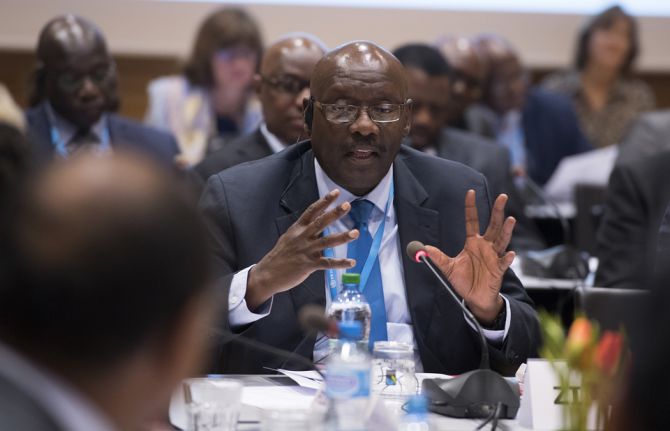
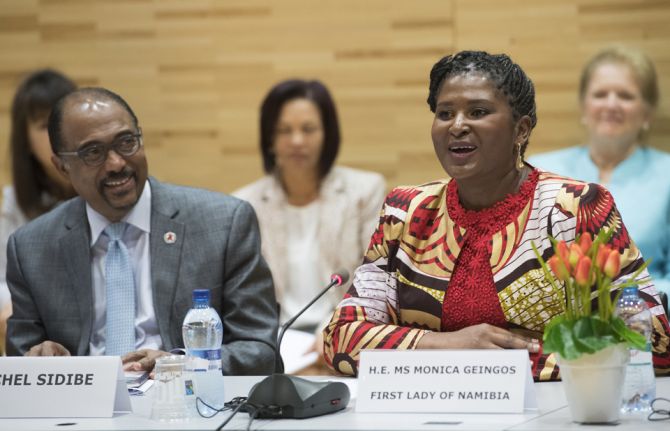
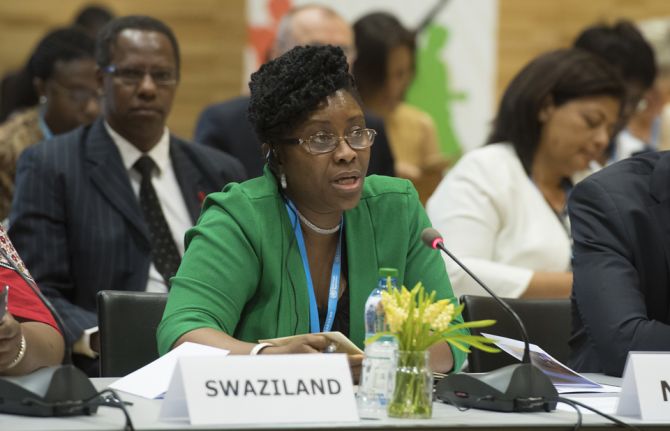
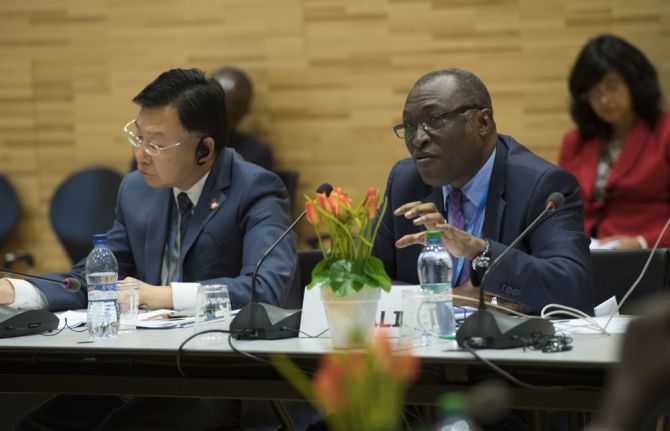
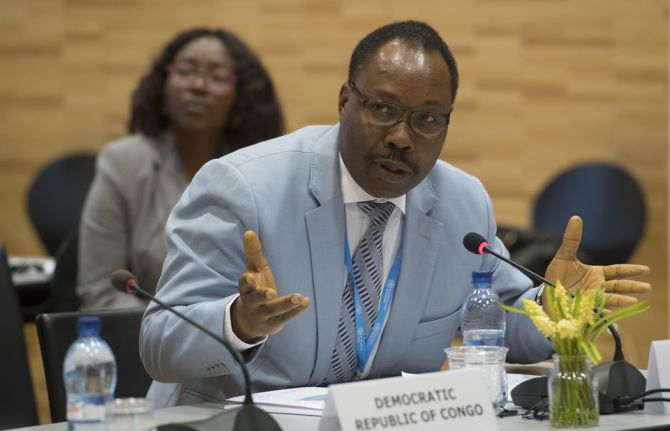
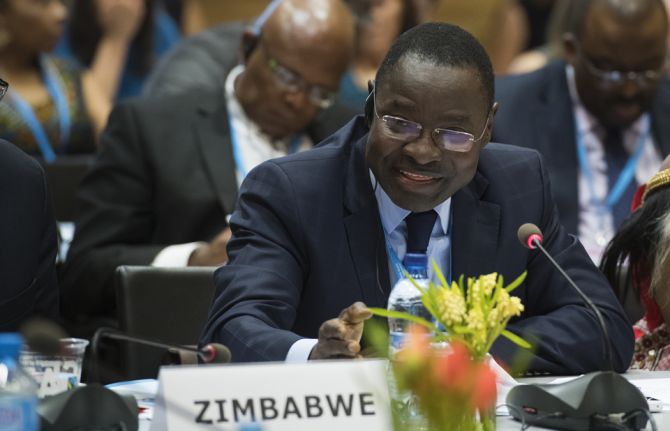

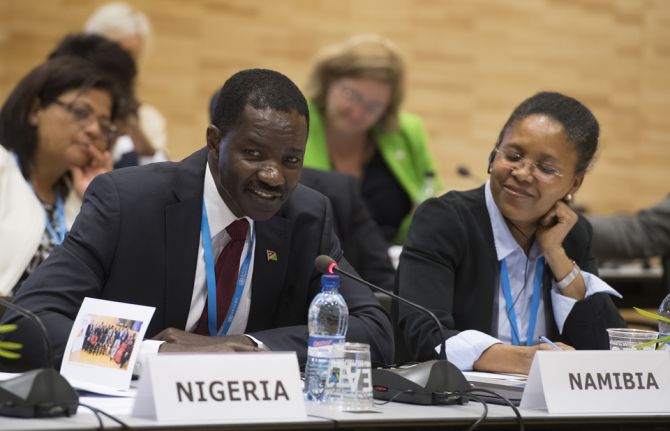
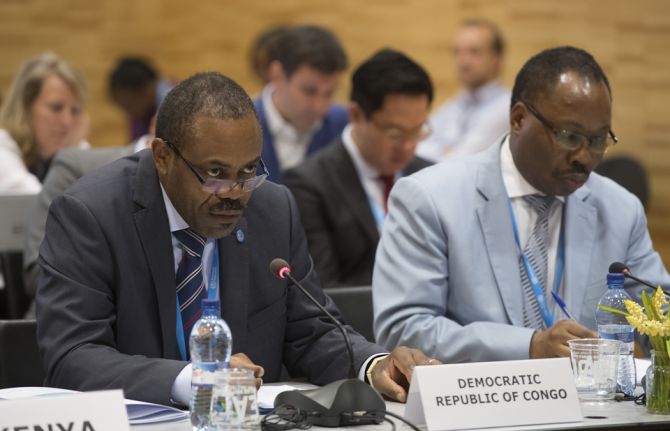
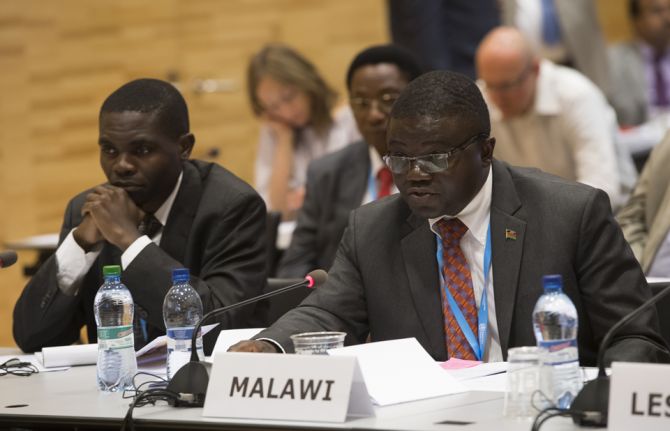
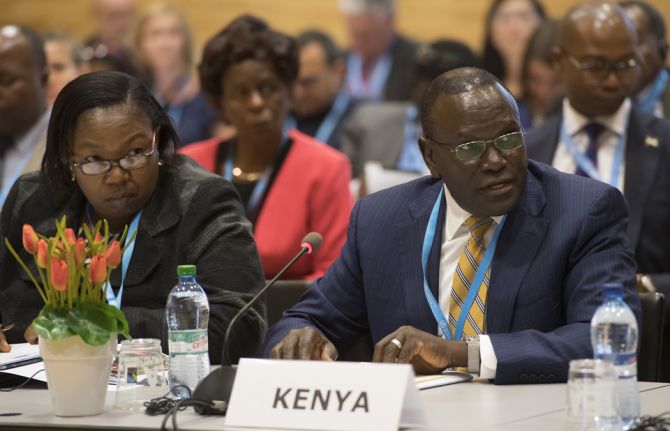
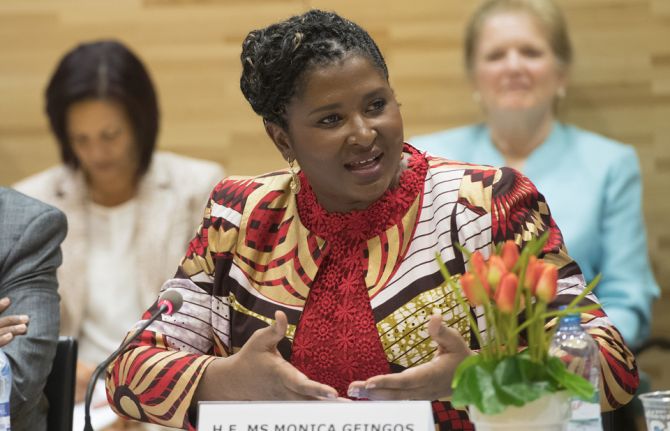
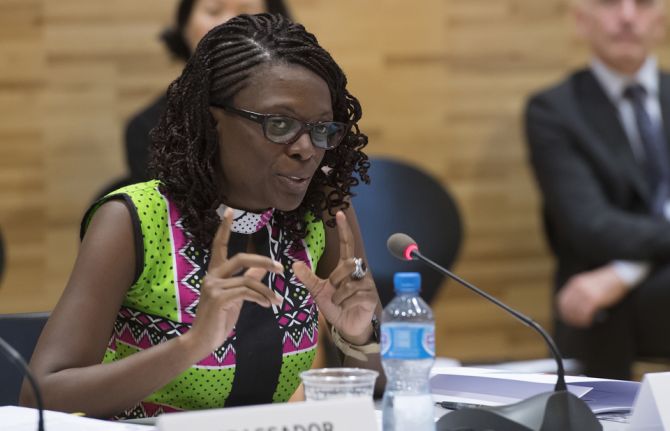
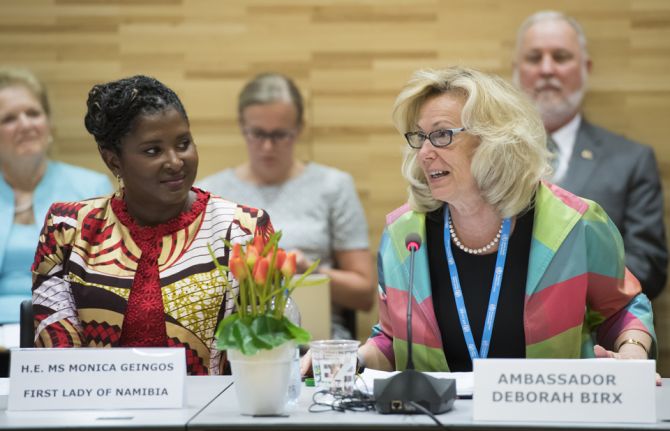
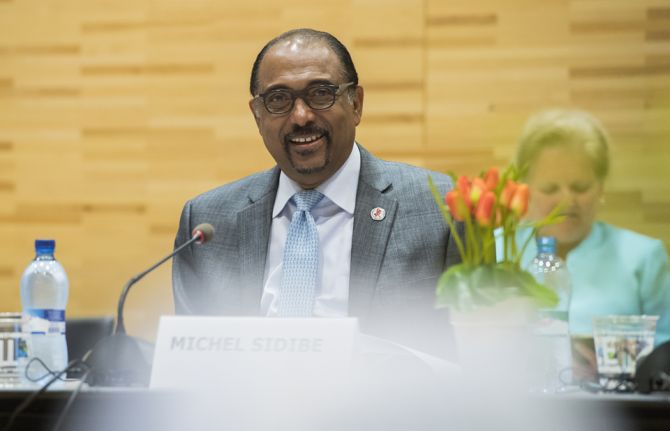
Update
Stay Free proving a challenge in many countries
24 May 2017
24 May 2017 24 May 2017UNAIDS and the United States President’s Emergency Plan for AIDS Relief have convened a ministerial meeting to review progress in implementing the Start Free, Stay Free, AIDS Free framework on 24 May. The meeting, sponsored by Lesotho, Malawi, Swaziland, and the World Health Organization was held on the sidelines of the 70th World Health Assembly.
The First Lady of Namibia and UNAIDS Special Ambassador for Young Women and Adolescent girls, Monica Geingos, was a special guest at the meeting. She gave an inspiring keynote speech that set the tone of the meeting, in which she emphasized the need to change the way we speak to young people and train the people who are educating them on sex and HIV, including teachers and grandparents.
“We’ve done so much great work on the Start Free, but there’s something wrong on the Stay Free,” said the First Lady. “Young people have changed the way they talk and we need to speak their language so we can reach them in a way they can relate to.”
Florence Anam, from the International Community of Women Living with HIV, shared her own personal experience and talked about health systems that are ill-equipped to deal with teenagers and teenage pregnancy. She said, “We need to invest in networks of women living with HIV and build our capacity to contribute to and engage with actions that impact on our lives.” She also talked about the need to involve men and create initiatives for greater male engagement to promote shared responsibility.
The common theme of the meeting was the agreement that excellent work has been done to stop new HIV infections among children, but that adolescents have been left behind and a new approach is needed to reach and engage them in staying free from HIV.
“We will never be able to control and end this epidemic if we don’t think ahead,” said Michel Sidibé, Executive Director of UNAIDS. “This means not just thinking about starting free and giving babies a chance to be born free, but also making sure that they stay free.”
“We are nothing without the scientific evidence, but it cannot be translated into programmes without communities and political leadership,” said Deborah Birx, United States Global AIDS Coordinator and Special Representative for Global Health Diplomacy.
Ministers of health and representatives of Cameroon, the Democratic Republic of the Congo, Kenya, Lesotho, Malawi, Mali, Namibia, Nigeria, Swaziland, Togo and Zimbabwe joined the Executive Director of UNAIDS and the United States Global AIDS Coordinator to look at some of the challenges they are facing in scaling up HIV prevention and treatment, as well as to share some of the success stories from their respective countries.
They were asked to describe what was the one most important action they were initiating under the Start Free, Stay Free, AIDS Free agenda. Below are some of the highlights of their responses.
Quotes
“One of the interesting approaches we took in the Democratic Republic of the Congo was a programme where the distribution of antiretroviral medicine was done by people living with HIV. This helped decrease stigma, give easier and faster access to treatment and increase adherence. It also freed up health facilities and gave health workers an opportunity to concentrate on new patients and cases needing specialist medical attention.”
“There is an urgency to act responsibly towards ensuring babies are born free of HIV and protecting those babies into adolescence. It's not a matter of programming, but taking the responsibility to make the right choices.”
“Today we have implemented up to 99% of antiretroviral medicine coverage among pregnant women living with HIV but as a minister I’m not happy with 99%. The best measure is the number of children born without HIV. We want the entire country to be HIV-free.”
“Start Free is the order of the day. We have mobilized leaders, empowered young people and focused on reaching pregnant women. Stay Free is the challenge. We have to change the way we speak to young people and make sure that our HIV prevention programmes are led by young people.”
“In Zimbabwe, we have looked at two things: prevention and treatment. If you want to do treatment, do treatment, it’s very good. But if you don’t turn the tap off on new infections, then you have a problem. This is why for Zimbabwe its prevention, prevention, prevention.”
“We have raised political awareness, scaled up HIV testing, but we have a problem of stock-outs and loss to follow-up for which we would like to find solutions.”
“We need to work together and to be accountable, we need all partners, including non-governmental partners, to work hand in hand. We can't do it without our partners—it’s the only way we can accelerate our response.”
“We have mobilized both financial and human resources. Our programmes are being driven by community health workers. They are our solution to our engagement with communities.”
“We have made a certain amount of progress and our objective is to continue along this path. It is important that we don’t let our guard down. We also want to recognize the accomplishments made by our partners, particularly UNAIDS. Alone we go fast, but together we go far.”
“We have a three-month antiretroviral medicine policy because we found that people were not adhering to their medicines because they were taking so much time off work to go time and again to the health centres. And now we are considering going up to a six-month regime. We are looking into how this will work for us.”
“We are expanding our universal health coverage and one of the key interventions is preventing mother-to-child transmission. As part of this we have procured supplies of rapid test kits and first-line drugs for HIV treatment. HIV is also now part of the school curriculum.”
“We need to simplify integrated services for prevention of mother-to-child transmission of HIV and tuberculosis, we need to pay attention to the needs of children—there are too many late diagnosis, and we urgently need age-appropriate formulas to be made available.”



